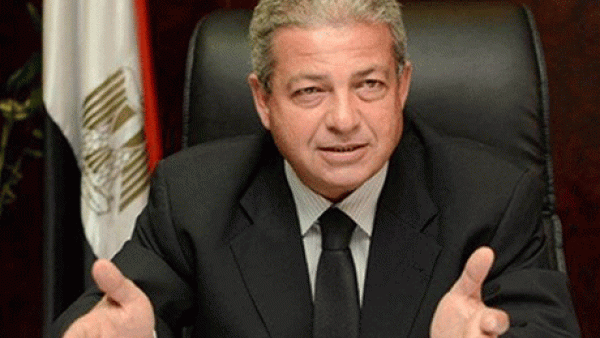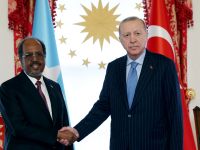Egypt's Ministry of Youth and Sports told Ahram Online it plans to issue a regulation to severely restrict the hiring of foreign coaches due to ongoing dollar crisis in the country.
The ministry had already informed all sports federations that it would only sanction the payments made to foreign coaches in Egyptian pounds on a par with the official exchange rate set by Egypt's Central Bank.
Spokesman Mohamed Kassab also told Ahram Online the ministry has an intention to later impose a complete ban on the appointment of foreign managers.
"We have very well-qualified Egyptian coaches in all sports. Foreigners cost a lot and you are aware of the country's economic crisis," Kassab added.
Foreign reserves have dwindled since the 2011 uprising that unseated autocratic leader Hosni Mubarak and the pound is almost worth half as much on the black market as it is in the banks. The official exchange rate is set at EGP 8.78.
"The ministry aims to save around $900,000 annually," Kassab added.
The new regulation is supposed to take effect in November, which will also oblige any federation to get the ministry's approval to employ or extend the contract of a foreign coach.
Mamdouh El-Shishtawi, the executive director of Egypt's Olympic Committee, praised the new decision, saying it would help direct resources to the right places.
"Whatever the amount saved, it will surely help boost other things, like training Egyptian coaches for example. We haven't received any official objections from any federation. There will be no exceptions and should any foreigner object he/she is free to leave," El-Shishtawi said.
Federations support regulation
Ahram Online interviewed many officials from several federations and most of them - including the federations of handball, boxing, tennis, weightlifting, taekwondo, fencing and swimming – said they will not have any problems implementing the new regulation because they already rely on national coaches.
Weightlifting Federation chairman Mahmoud Mahgoub believes Egyptian coaches are usually more successful than foreign counterparts.
"We must support Egyptian coaches by paying them enough and enhancing their skills through regular training," he said.
"I don't say that we should pay them the same amount of money we normally pay to foreigners; even half of that will be ok.
"We relied on foreigners in weightlifting many times but our best results were always accomplished by Egyptian coaches," he added.
Taekwondo's executive manager Ahmed Sultan said cooperation is needed to "help the country during the ongoing crisis", saying his federation already pays any foreign coaches in Egyptian pounds.
"The decision is good. We already don't have any foreign coaches in swimming and we plan to continue relying on Egyptian coaches, who are equally qualified as foreigners, until 2022," Egyptian Swimming Federation executive manager Yasser Ali stated.
The Egyptian Football Association is the only entity that is not bound to the new decision, given that it does not get any funding from the sports ministry because the most popular sport in the country is rich of sponsors and resources.
The Pharaohs are led by veteran Argentinean coach Hector Cuper, who was appointed in March 2015 with the task of rebuilding an ailing side for the 2017 African Cup of Nations and the World Cup finals in Russia in 2018.
Exceptions required
A few problems and concerns have emerged that need to be addressed before the decision takes effect, according to some other federations.
"In September, we had an agreement with three foreign coaches to lead the men's U-19, U-21 and the senior team but after the new regulations, we decided to only appoint the first team's," Egypt's volleyball federation chairman Fouad Abdel-Salam said.
"We will contact the ministry to have an exception as we have a big dream to become one of the top-eight ranked teams in the world," he added.
The Basketball Federation is also seeking an exception after bringing in Spanish coach Juan Antonio Orenga to take charge of the first team in August. Orenga is also tasked with supervising a program to develop youth teams.
"We will discuss the matter with the ministry but we can terminate the contract if we have to," Basketball executive manager Abdallah Shalabi said.
The Athletics Federation staunchly opposes the new regulation, however, saying it will be deeply affected by the sudden move. It has not been officially notified of the decision though.
"Some prominent athletes are coached by foreign experts such as Javelin thrower Ihab Abdel-Rahman (2015 World Championship silver medalist) and hammer thrower Hassan Abdel-Gawad who both compete at high international levels," Athletics executive director Ahmed El-Werdani explained.
Rasha Hassan, spokeswoman for the Gymnastics Federation, said the sport's foreign coach may opt to terminate her contract if she finds it difficult to transfer money abroad, given that her family does not live in Egypt.
The Rowing Federation is also still aiming to renew the contract of Ukrainian coach Dmytro Riabukha that expired in September but the ministry is refusing to give them the go-ahead despite some fine results at the Rio de Janeiro Olympic Games.
"He helped Egypt advance to the 10th rank at the Rio Games, 10 places above what we did in London four years earlier," executive manager Magdi Afifi said
"His absence would negatively affect the team which is already suffering from a long list of problems. We don't even have a place for trainings and we can't afford to even rent one."
Fencing Federation manager Tamer Aboul Seoud highlighted another problem related to the foreign currency crisis - the difficulty of providing funds for regular training camps abroad.
The Ministry of Youth and Sports told Ahram Online that each case will be examined separately and that some exceptions may be granted.








